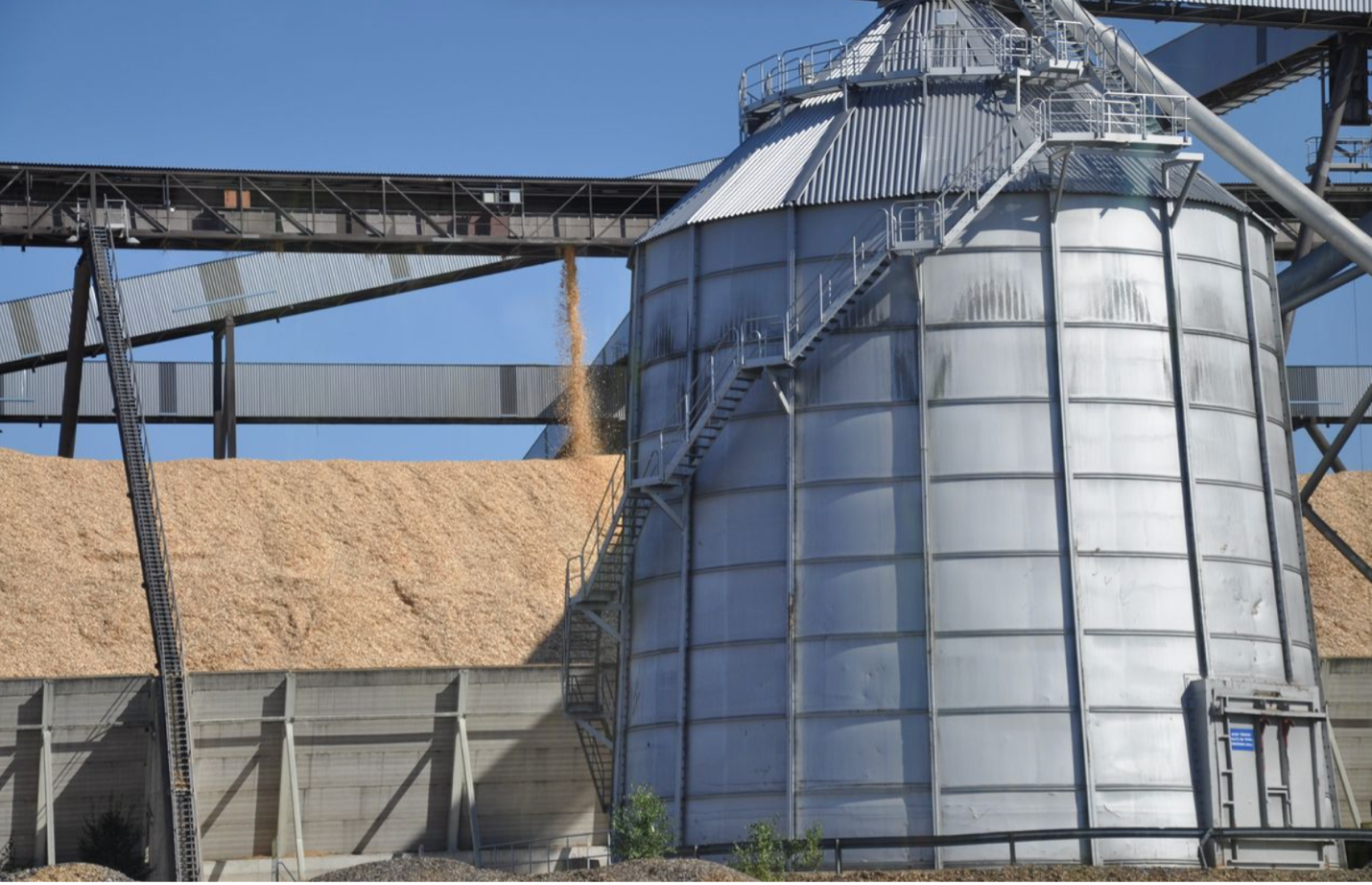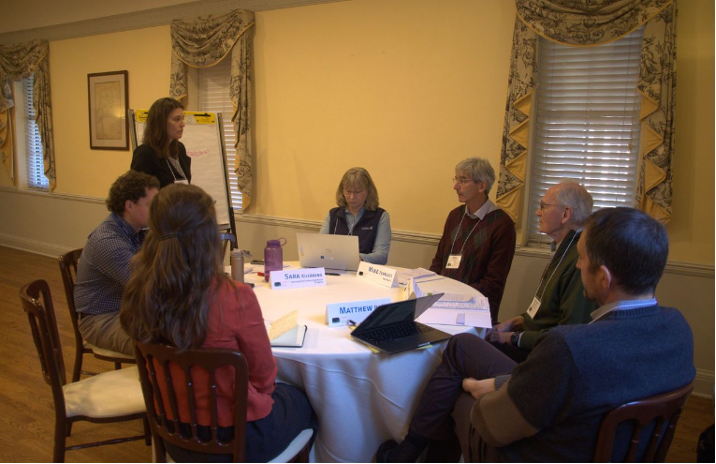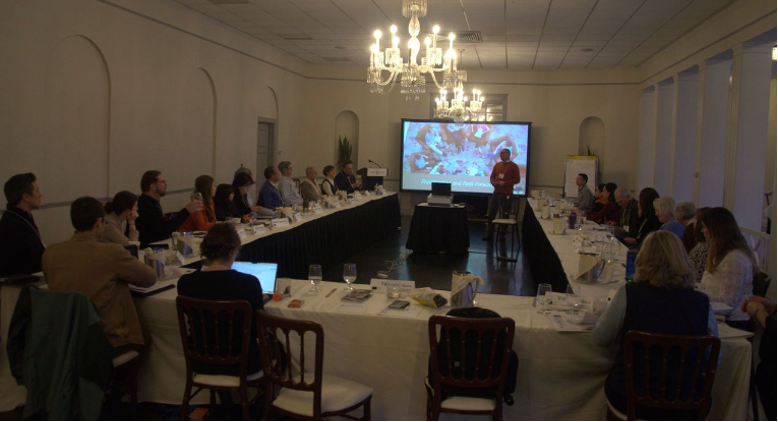Transitioning Toward More Sustainable Solutions: Bioenergy From Forests

By: Mimi Martinez Okhuysen ’25 MEM
Bioenergy from forests (BEF) refers to energy generated from the combustion of forest biomass, including logged wood, wood waste such as limbs, and other biofuels derived from wood. This form of energy is becoming increasingly popular and controversial, leading many to explore how to improve the structure of the industry. What role should BEF play in energy production across the world? How will potentially higher rates of harvest for woody biomass impact sustainable forest management on a regional level?
To explore these questions, The Forests Dialogue (TFD) convened a scoping dialogue of 28 individuals representing diverse stakeholder groups on February 27, 2024, in New Haven, Connecticut. The scoping dialogue was aimed at outlining the goals of a multi-stakeholder dialogue initiative including field dialogues to explore further solutions to these key management questions related to BEF. Reflecting on the scoping dialogue, Co-Chair Phil Rigdon, a member of the Yakama Nation and vice president of the Intertribal Timber Council, identified that “The Forests Dialogue highlighted opportunities for bioenergy from forests while also understanding the complex issues that will make BEF challenging. This will help as we look at a balanced approach to our energy future, including the role of forests.”
For TFD to frame an issue, like BEF, the first step is to determine at what scale TFD will address a particular issue (global, regional, or local). For BEF, TFD’s steering committee chose to start the initiative focused on the U.S. as the growing global demand for BEF is causing a strain on biomass.
The U.K. and European Union now consider BEF to be a renewable resource, which has caused an increase in demand for forest biomass from U.S. forests, as it has increased the fuel source’s eligibility for government subsidies. The transition urges the industry to do more to avoid exacerbating environmental injustices, better protect forest health, and build capacity with sustainability in mind. To help address these considerations, TFD held its scoping dialogue in late February of this year. Participants included representatives from the private sector, NGOs, youth, academia, and Indigenous peoples from across the U.S.

In September 2014, The Forests Dialogue convened a field dialogue on Food, Fuel, Fiber, and Forests (4Fs) in Finland. The dialogue gathered 30 participants from 19 countries to explore Finland’s land-use decision-making on how stakeholders actively balance the demand for bioenergy, timber, pulp, and paper products with the preservation of ecosystem services. Photo: TFD.
During the dialogue, participants were tasked with identifying and exploring key areas of agreement and disagreement, or “fracture lines,” that exist between stakeholders regarding the future opportunities and challenges facing BEF. To navigate BEF being a controversial topic, scoping dialogue participants focused on where they saw opportunities for common ground, including shared perspectives on sustainable forest management. Gary Dunning, executive director of TFD, reflecting on the discussions over the day, shared that “while there are disagreements about the ideal future for BEF, everyone agreed that there needed to be a sane space to come together and search for solutions proactively.” Recurring themes and questions included:
- What role does BEF play in helping mitigate the impacts of climate change through any potential impact on emissions within energy systems?
- What tradeoffs exist between people’s health, jobs, and overall well-being when producing bioenergy from forests, especially in an environmental justice context?
- When, where, and how much BEF production and usage should be occurring in regional areas across the U.S.?
- What enhanced capacity is needed to have sustainable growth within the industry, and how can it be built?
- What accounting schemes make the most sense in tracking emissions?
- How does the industry operate under market uncertainty?
- How are environmental justice communities impacted by the decision-making surrounding BEF?
The second half of the dialogue focused on concerns and opportunities at regional levels in the U.S. Participants divided into their areas of regional expertise — Northeast, Southeast, and West — to discuss the key challenges, opportunities, and needs for supporting the social and ecological sustainability of forests in each region.

Grounded in TFD’s approach, dialogue, and small group discussions provide an opportunity to dig deeper into stakeholders’ experiences and expertise. Dialogue Co-Chair Sara Kuebbing (top left), research director of the Yale Applied Science Synthesis Program, leads a small group discussion on February 27, 2024. Photo: TFD.
In the Northeast, stakeholders identified a lack of forest diversity, low growth rates, and inadequate mill infrastructure — which hinder the market for low-grade materials — as challenges. Despite this, opportunities may lie in supporting sustainable forest management activities that diversify rural economies, enhance forest resilience, and improve urban market connections. Stakeholders believe community-informed, or better yet community-driven, forest management is crucial for addressing these challenges effectively.
In the Southeast, retaining land as forests amidst market shifts and accessing diverse markets for low-value products are key challenges. However, embracing a circular bio-economy and effective stakeholder engagement offer promising avenues for sustainability. In the West, severe wildfires and an aging workforce pose a risk to the industry, but post-fire responses present opportunities for infrastructure investment and the entering of new markets. Stakeholders identified the importance of horizontal integration (collaboration across different parts of the industry) and the adoption of advanced technology (including practices that reduce air pollution) as necessary for building more resilient forestry systems.
With these outcomes in mind, The Forests Dialogue is now moving forward into the field dialogue phase of the initiative, which will be convened in key regions of the U.S. to help address these key areas of concern. Stay tuned!

Participants adhere to the ground rules of the scoping dialogue, ensuring open exchange while respecting confidentiality, on February 27, 2024. Through active listening and individual engagement, they aim to shape outcomes collaboratively. Photo: TFD.
